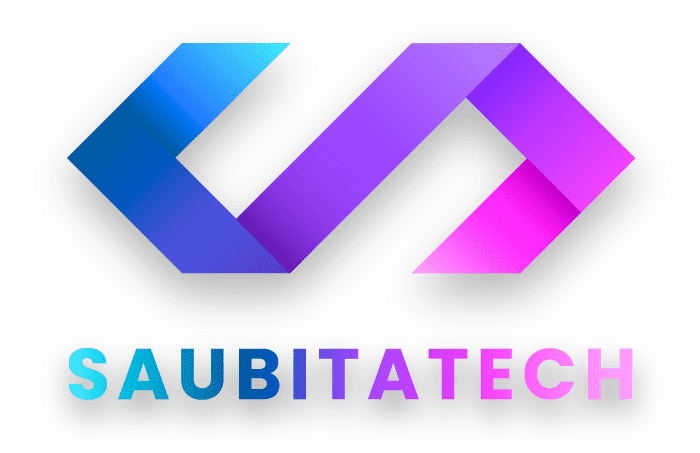Mobile app development has rapidly evolved, especially with businesses striving to offer seamless digital experiences. One question that continues to dominate strategy meetings in 2025 is: Should you build a cross-platform app or go native?
As an industry leader in digital transformation, SaubitaTech helps companies navigate this critical decision with clarity, cutting-edge tools, and deep industry insights. This blog dives into the strengths and drawbacks of each approach to help you make the right choice for your next app project.
What Are Native Apps?
Native apps are built specifically for one platform—like iOS or Android—using platform-specific programming languages such as Swift (for iOS) or Kotlin/Java (for Android). These apps are installed through app stores and take full advantage of device capabilities like GPS, camera, and performance optimization.
Benefits of Native Apps
- Top Performance: Native apps are faster and more responsive due to direct hardware access.
- Better UI/UX: Designed to align perfectly with platform guidelines, providing a smoother user experience.
- Enhanced Security: Tighter integration with the OS means better control over security protocols.
- Offline Capability: Works better in environments with limited connectivity.
Drawbacks
- Higher Cost: Separate codebases for iOS and Android increase development time and budget.
- Slower Development: Building two separate apps takes longer unless you have dedicated teams.
- Maintenance Overhead: Updates and bug fixes must be applied separately to each platform.
What Are Cross-Platform Apps?
Cross-platform apps are developed using frameworks like React Native, Flutter, or Xamarin, enabling one codebase to run across multiple platforms. In 2025, these tools are more powerful than ever, narrowing the performance and feature gap.
Benefits of Cross-Platform Apps
- Cost-Effective: A single codebase reduces both development time and costs.
- Faster to Market: Simultaneous deployment on Android and iOS speeds up the launch process.
- Unified Experience: Easy to maintain consistent branding and features across platforms.
- Efficient Maintenance: One update applies across all supported platforms.
Drawbacks
- Performance Gaps: While the gap is shrinking, heavy animations or graphics-intensive apps still perform better natively.
- Limited Native API Access: Some OS-specific features may require extra development work or custom bridging.
- UI Constraints: Design elements may not fully match platform-specific guidelines.
Use Cases in 2025
When to Choose Native Apps
- High-performance apps (e.g., gaming, augmented reality)
- Apps that heavily rely on device-specific APIs
- Complex animations or real-time features like video streaming
- Enterprises prioritizing security and long-term scalability
When to Choose Cross-Platform Apps
- Startups with limited budgets aiming for quick MVPs
- Business apps with standard UI/UX needs
- E-commerce platforms targeting a wide audience
- Projects with tight launch deadlines
How to Validate Your App Idea Before Development

Market Trends: What’s Changing in 2025?
With rapid advancements in frameworks like Flutter 4.0 and React Native’s integration with AI capabilities, cross-platform solutions now deliver up to 90–95% of native performance. Meanwhile, Android and iOS continue to evolve, introducing OS-specific enhancements that native apps can leverage more effectively.
AI & Automation Integration
Whether native or cross-platform, the future lies in AI-driven automation and user personalization. SaubitaTech integrates AI and Robotic Process Automation (RPA) to create smarter, self-learning apps that drive engagement and ROI.
Performance Showdown: Native vs. Cross-Platform
| Feature | Native Apps | Cross-Platform Apps |
| Performance | ⭐⭐⭐⭐⭐ | ⭐⭐⭐⭐ |
| Development Cost | High | Low |
| Time to Market | Slower | Faster |
| Code Reusability | None | High |
| Device Integration | Full | Partial |
| UI/UX Consistency | Excellent | Moderate to High |
| Scalability | Excellent | Good |
Choosing the Right Partner for App Development
The choice between native and cross-platform development also depends on your technology partner. SaubitaTech specializes in mobile app development for businesses of all sizes—from startups to global enterprises.
We offer:
- Strategic consultation tailored to your business goals
- Custom app architecture aligned with user needs
- AI integration for advanced user personalization
- End-to-end development from UI/UX to QA and deployment
Need more than just app development? Explore our digital commerce and marketing automation services that help drive conversions and maximize lifetime customer value.
Business Impact: Real-World Examples
Cross-Platform Case Study
A fintech startup partnered with SaubitaTech to build a Flutter-based app that runs seamlessly on iOS and Android. The project saved 40% in development costs and went to market in half the time compared to a native build. With integrated marketing automation, the app now serves over 50,000 users globally.
Native App Case Study
A logistics enterprise needed a highly secure, GPS-powered app for real-time tracking. Native development using Swift and Kotlin provided superior speed and security. The result? 30% improvement in delivery efficiency and 60% fewer service tickets.
Hidden Costs to Consider
While cross-platform apps may appear cheaper, long-term updates, OS compatibility issues, and third-party plugin limitations can add to the cost. On the flip side, native apps might cost more upfront but offer greater longevity and performance consistency, especially in enterprise environments.
This is where SaubitaTech’s consulting helps. We evaluate long-term TCO (total cost of ownership) to recommend the most scalable solution—whether native or cross-platform.
Why the Energy Sector Needs Digital Transformation
Talent & Team: The SaubitaTech Difference
Our app development is powered by cross-functional teams combining engineering, design, QA, and cloud experts. Plus, our Recruitment Process Outsourcing (RPO) ensures top-tier developers are aligned with your needs—on-demand and at scale.
Need Help Deciding?
Choosing between native and cross-platform development is more than just a tech decision—it’s a strategic move. SaubitaTech can help you evaluate:
- Project goals and scope
- Budget vs performance needs
- Timeline for delivery
- Monetization model
- User demographics
Get in touch with our team through our contact page and let’s discuss the right path for your mobile app success.
Final Verdict: Which One Wins?
There is no one-size-fits-all answer. Both cross-platform and native apps have their advantages, and the right choice depends on your specific business needs in 2025.
- Go Native for performance, deep integration, and long-term scalability.
- Go Cross-Platform for speed, cost-efficiency, and MVP launches.
When in doubt, partner with experts like SaubitaTech who understand the nuances of both approaches and can deliver results aligned with your business vision.







